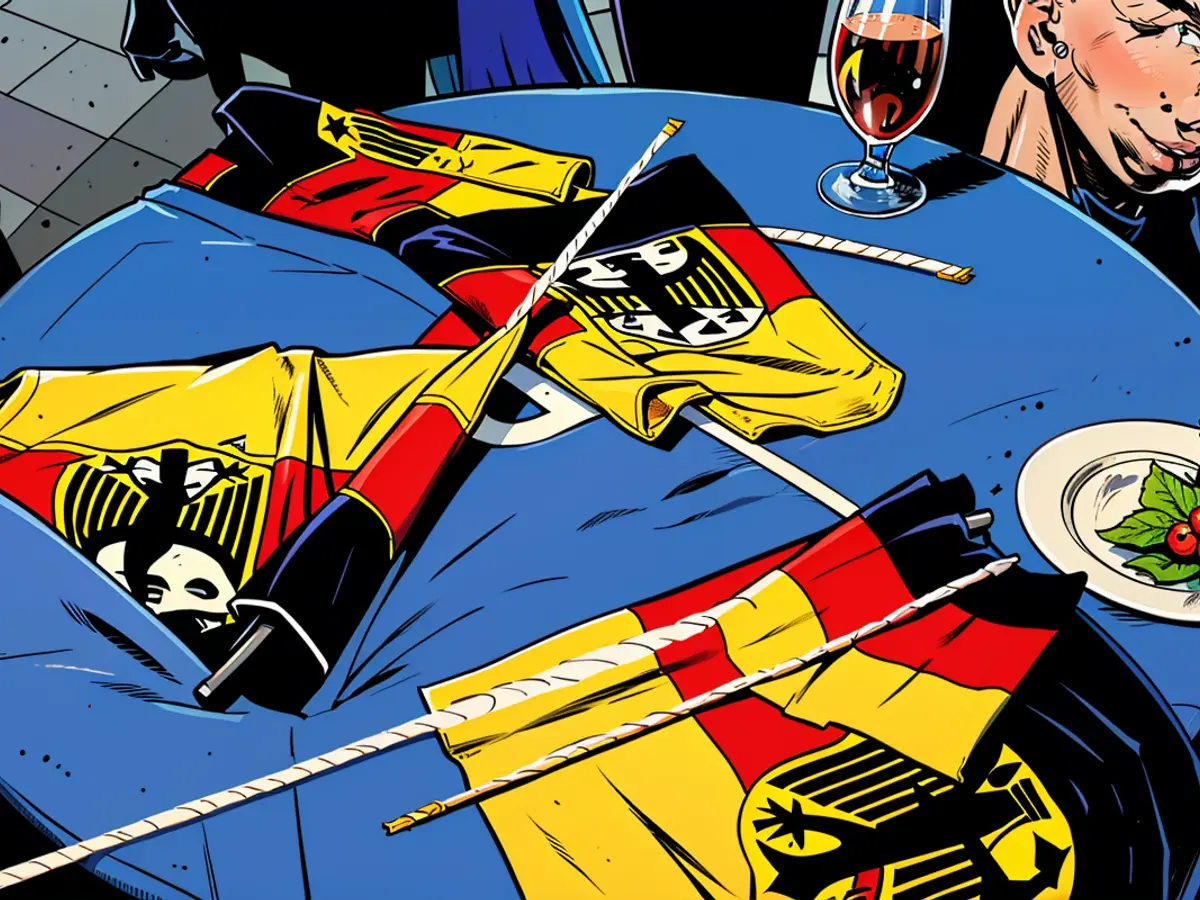Ampelparty wants to enhance its image following election loss - CDU/CSU perceives itself as more powerful
In an interview with Welt TV, Kühnert commented on the lack of momentum toward the SPD, noting the party's commitment to important issues but also their association with the struggling "traffic light" coalition. The SPD must reassess their identity, he said, acknowledging that sliding into a toxic situation is difficult to escape.
When asked about their calls for a loosening of the debt brake, Kühnert admitted that implementing such policies would be a challenge within a coalition with the FDP. Additionally, the budget presentation for 2025 is already tight, making these demands less feasible. Refusing to speculate on a potential coalition breakup over the budget dispute, he responded vaguely.
The FDP's leader and Germany's Federal Finance Minister, Lindner, emphasized his support for fiscal consolidation, stating that staying committed to strict budget management is the path to electoral success. Heforesaked the SPD's chancellor, Olaf Scholz, to stand firm in line with the coalition agreement, even if some parties differ in opinion.
The Greens cautioned against public infighting within the coalition. In a meeting of party officials, Nouripour effectively summarized the complexity of the current federal budget negotiations, but urged against public displays of disagreement. Nouripour also reiterated the party's strong commitment to climate protection, reminding listeners of the serious consequences of comprehensive gains. They hope to maintain their position until the 2025 election.
The Union parties, having secured the highest number of votes in the European election, deemed the coalition a failure and pushed for swift elections of the Bundestag. CSU leader Markus Söder branded federal chancellor, Olaf Scholz (SPD), as a king without a country. CDU leader Friedrich Merz avoided endorsing the call for a re-election but acknowledged that the coalition's support has dwindled. Government spokesman Steffen Hebestreit dismissed the idea of early elections, arguing that the fall 2025 date should be adhered to.
Hebestreit noted the considerable differences between Germany and France's political systems, where president Macron announced fresh elections after his party's poor performance in the U.E. election. AfD leader Tino Chrupalla interpreted his party's strong results as a boon for future state elections, with the greatest concentration in the five states of eastern Germany. Co-party leader Alice Weidel expects the AfD to form a government in Saxony.
Founder of the new party Sahra Wagenknecht considered her party's success in the European election a positive signal for upcoming state elections in September, aiming for double-digit results in the east. The Left Party leadership, in response to the election's disappointing outcome, pledged an overhaul that might entail personnel changes. Party leader Martin Schirdewan labelled this a "re-founding process."
Read also:
- The SPD, still reeling from their 'Election defeat' in the federal elections, is seeking to enhance its image, acknowledging the challenges in distancing themselves from the 'traffic light' coalition.
- In the European elections, the Union parties, including the CDU/CSU, secured a significant number of votes, perceiving themselves as more powerful and deeming the current 'coalition a failure'.
- FDP leader and Germany's Federal Finance Minister, Christian Lindner, emphasized the importance of 'fiscal consolidation' for electoral success, urging the SPD's chancellor, Olaf Scholz, to adhere to the coalition agreement.
- The AfD, whose leader Tino Chrupalla interpreted their strong results as a boost for future state elections, particularly in eastern Germany, expects to form a government in Saxony.
- The 'coalition agreement' between the SPD, Green Party, and FDP has led to complex budget negotiations, with parties like the Greens cautioning against public infighting and urging unity.
- 'Kevin Kühnert', the SPD's former chairman, acknowledged the challenges in reassessing their identity and acknowledged the party's 'commitment to important issues' but association with the struggling 'traffic light' coalition.
- The Greens, under Omid Nouripour, stressed their strong commitment to 'climate protection' and the need to maintain their position until the 2025 election, despite the complexity of budget negotiations.
- The Union parties, led by Markus Söder, have push for 'swift elections of the Bundestag' and criticized Olaf Scholz, labeling him a 'king without a country', following the results of the European elections.
- The election outcome was a 'disappointment' for the Left Party, leading to a pledge for an 'overhaul' and possible 'personnel changes', as party leader Martin Schirdewan announced a "re-founding process".
- Founder of the new party Sahra Wagenknecht, who considers her party's success in the European election a 'positive signal' for upcoming state elections in September, aims for double-digit results in the east.







